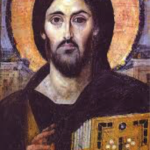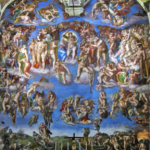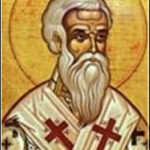I am very glad to be posting on this day, the first Sunday of Advent, because it affords me the opportunity to meditate on a theme which one seldom hears preached from the ambo but upon which our very salvation rests! This theme, of course, is Christ’s return (parousia) in judgment over the living and the dead on the last day (eschaton).
 Most Christians, and many non-Christians for that matter, could easily identify Jesus’ resurrection is the central belief of Christianity. In fact, it is only in the light of Christ’s resurrection that other Christian dogmas, such as the Trinity and Incarnation, can be seen as revealed truths. But what is often obscure is the meaning of Christ’s resurrection for us. Jesus’ resurrection is the “first fruit,” i.e., the sign and the promise, of the transformation that awaits all of creation (cf. 1 Cor 15:23-24). To put it plainly: a heaven of disembodied spirits is not our ultimate destination. Our ultimate destination, what we hope for, is the transformation of the entire cosmos, God’s Kingdom on earth, and our own resurrection into eternal life.
Most Christians, and many non-Christians for that matter, could easily identify Jesus’ resurrection is the central belief of Christianity. In fact, it is only in the light of Christ’s resurrection that other Christian dogmas, such as the Trinity and Incarnation, can be seen as revealed truths. But what is often obscure is the meaning of Christ’s resurrection for us. Jesus’ resurrection is the “first fruit,” i.e., the sign and the promise, of the transformation that awaits all of creation (cf. 1 Cor 15:23-24). To put it plainly: a heaven of disembodied spirits is not our ultimate destination. Our ultimate destination, what we hope for, is the transformation of the entire cosmos, God’s Kingdom on earth, and our own resurrection into eternal life.
The celebration of Christ’s first coming at Christmas ought, therefore, to make us “groan within ourselves as we wait for adoption, the redemption of our bodies” (Rom 8:23). Just as at the birth of an earthly prince, an heir to the throne, we might anticipate the time when he finally rules over his kingdom, so too do we anticipate at Christmas the time when Christ’s Kingship (last Sunday) will be manifest “on earth as in heaven” (Mt 6:10). The Preface Prayer from today’s Mass reminds us that this is the fulfillment our hope.
For he assumed at his first coming the lowliness of human flesh,
and so fulfilled the design you formed long ago,
and opened for us the way to eternal salvation, that,
when he comes again in glory and majesty and all is at last made manifest,
we who watch for the day may inherit the great promise in which we now dare to hope.
One might say that our very lives while here on earth are preparation for the Kingdom. Jesus’ own Gospel proclamation announced its arrival. “This is the time of fulfillment. The kingdom of God is at hand. Repent, and believe in the Gospel” (Mk 1:15; cf. Mt 3:2). Jesus’ life, his teachings, and the grace which he bestows upon us through the sacraments of the Church, are all preparations for this Kingdom; a Kingdom which will only be consummated at his return. In this regard, all Christians are called to be Echatological Christians; that is, Christians who pray and long for Christ’s return. We are all called, with St. Paul, to pray “Marana tha” (1 Cor 16:22), which means “Our Lord, come,” or, as elsewhere in the NT, “Come, Lord Jesus!” (Rev 22:20).
 Thus, perhaps for reflection on this First Sunday of Advent, we ought to ask ourselves: Do I pray for the coming of the Lord or would I prefer that he take his time in returning? Have the goods of this world captured my imagination so that, in my everyday life, I have made them ends in themselves rather than means to my salvation? Do I live St. Paul’s exhortation to “not be conformed to this world but be transformed by the renewal of [my] mind” (Rom 12:2). Will the Master of the house arrive and find me sleeping, at rest with the comfortable life I have made for myself? In today’s Gospel Christ reminds all of us to be prepared for his return at any and every moment. “Watch!” (Mk 13:37).
Thus, perhaps for reflection on this First Sunday of Advent, we ought to ask ourselves: Do I pray for the coming of the Lord or would I prefer that he take his time in returning? Have the goods of this world captured my imagination so that, in my everyday life, I have made them ends in themselves rather than means to my salvation? Do I live St. Paul’s exhortation to “not be conformed to this world but be transformed by the renewal of [my] mind” (Rom 12:2). Will the Master of the house arrive and find me sleeping, at rest with the comfortable life I have made for myself? In today’s Gospel Christ reminds all of us to be prepared for his return at any and every moment. “Watch!” (Mk 13:37).
Anthony Coleman teaches theology for Saint Joseph’s College Online.
Don’t miss Saint Joseph’s College Online faculty (and blogger!) Susan Timoney presenting a webinar through the Catholic Apostolate Center on December 2. Click here for details!


